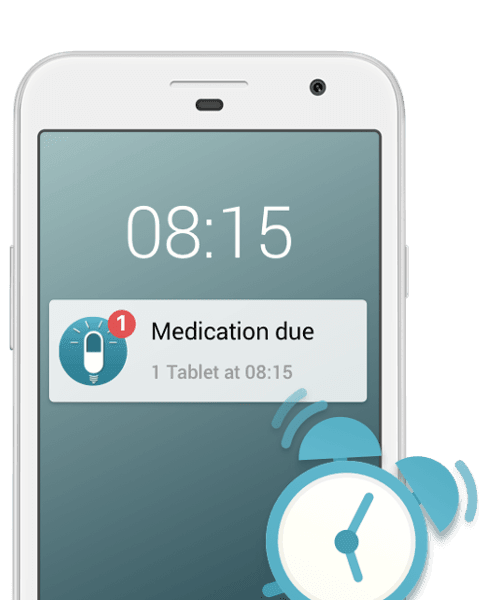Experts believe people living with certain types of cancers may be more at risk of developing serious complications from COVID-19, the disease caused by the 2019 novel coronavirus, than the general population. In particular, people receiving treatment that suppresses the immune system may have a greater risk of experiencing serious symptoms, such as pneumonia, should they be infected. Accordingly, many health organizations and professionals are recommending people more vulnerable to COVID-19 should take extra precautions. We’ve rounded up some advice from trusted sources, such as the National Cancer Institute and Cancer Research UK, to help you and your loved ones stay safe during this challenging time.
The content on this page is provided for informational purposes only. While we have made every effort to ensure the information in this article is accurate and from reliable sources, the coronavirus situation is rapidly evolving, and new information is regularly coming to light. Please check the latest advice provided by your country’s government or national healthcare service and act accordingly.
Coronavirus & cancer: Who is at risk?
While there is a great deal we do not yet know about the current coronavirus, it has been established that certain groups are more likely to experience serious symptoms of COVID-19 than the general population. According to the NHS, these include people who:
- Have had an organ transplant and are taking an immunosuppressant medicine
- Are having (or who have recently received) chemotherapy or radiotherapy
- Have blood or bone marrow cancer, such as leukemia
Other cancer treatments that can affect the immune system, such as protein kinase inhibitors, are also believed to increase your risk.
This does necessarily mean you are at greater risk of infection, but it does mean your body and immune system may be less prepared to fight the virus should you catch it. Because of this risk, many organizations have provided additional advice for people living with cancer and their loved ones.
Recommendations for People Living with Cancer
We have rounded up five tips for people living with cancer from reliable sources.
1. Strictly follow precautions
It is particularly important for people at risk from coronavirus, including those living with cancer or receiving treatment that weakens the immune system, to take measures to reduce the risk of contracting the virus. These include:
✔️ Avoid large gatherings and public transportation
✔️ Avoid traveling to known endemic areas
✔️ Avoid possible sick people and people who have traveled to known endemic areas
✔️ Wash your hands regularly and very thoroughly
✔️ Use disinfectants, especially after contact with objects that are touched by many people (door handles, railings, etc.)
✔️ Do not touch your face, especially your mouth, nose, and eyes
✔️ Use disposable tissues when sneezing or coughing, or do so in the crook of the arm
✔️ Keep regular tabs on the latest measures being enforced in your country or region and follow them strictly
2. Speak to your doctor about treatment options
There is no ‘one-size-fits-all’ answer about the correct course of action regarding cancer treatment. The standard advice of adhering to your treatment unless told otherwise remains true. However, organizations, such as the National Cancer Institute, strongly recommend that you contact your healthcare provider.
Oncologists are deciding on a case-by-case basis the best course of action and whether the benefits of your treatment outweigh the risks posed by a weakened immune system at this time.
If you need to visit a clinic or hospital to receive treatment, the advice remains to contact them about the safest course of action.
A group of charities and organizations in the UK have grouped to develop coronavirus advice for people living with cancer. They say that, in most cases, cancer treatment will continue as usual, but that measures may be put in place to help patients avoid unnecessary human contact where possible.
Additionally, they reiterate the importance of people with cancer or receiving immunosuppressant treatment to stringently follow measures that mitigate the risk of infection.
3. Get flu & pneumococci vaccines
The National Cancer Institute and NHS recommend that people with cancer should receive the flu vaccination if they have not already done so.
The flu shot does not offer protection against COVID-19. However, it helps ensure your body is not already weakened by influenza should you contract COVID-19. The same applied to pneumococci vaccines. If you are not up to date with vaccinations, you should contact your doctor about the safest way of receiving them.
4. General tips
There are additional measures you can take to help ensure you are in the best shape to fight COVID-19, should you be infected.
✔️ Eat a balanced diet with plenty of fruit and vegetables
✔️ Stay hydrated – drink plenty of water
✔️ Exercise within your capabilities. The World Health Organization has provided a useful list of exercises you can perform within your own home
✔️ While this is a stressful time, try to make time for yourself and reduce unnecessary stress
✔️ Aim to get 7-9 hours of sleep. Studies have found that a lack of sleep makes you more susceptible to viruses and can weaken your immune system
If you should fall ill, either with symptoms of COVID-19 or another condition, current guidelines in most countries recommend that you:
❌ Do not go to a doctor's office unannounced
✔️ Call local health department, medical emergency service, or your family doctor
You can find more advice regarding the coronavirus outbreak and living with a chronic disease here: Coronavirus & Living with a Chronic Disease: Helpful Tips
Useful Resources
Here are some useful resources for people living with cancer and their loved ones. You can check these websites regularly to ensure you stay up to date with the latest advice:



